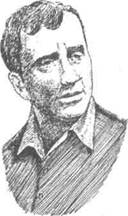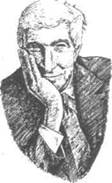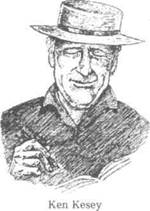
КАТЕГОРИИ:
Архитектура-(3434)Астрономия-(809)Биология-(7483)Биотехнологии-(1457)Военное дело-(14632)Высокие технологии-(1363)География-(913)Геология-(1438)Государство-(451)Демография-(1065)Дом-(47672)Журналистика и СМИ-(912)Изобретательство-(14524)Иностранные языки-(4268)Информатика-(17799)Искусство-(1338)История-(13644)Компьютеры-(11121)Косметика-(55)Кулинария-(373)Культура-(8427)Лингвистика-(374)Литература-(1642)Маркетинг-(23702)Математика-(16968)Машиностроение-(1700)Медицина-(12668)Менеджмент-(24684)Механика-(15423)Науковедение-(506)Образование-(11852)Охрана труда-(3308)Педагогика-(5571)Полиграфия-(1312)Политика-(7869)Право-(5454)Приборостроение-(1369)Программирование-(2801)Производство-(97182)Промышленность-(8706)Психология-(18388)Религия-(3217)Связь-(10668)Сельское хозяйство-(299)Социология-(6455)Спорт-(42831)Строительство-(4793)Торговля-(5050)Транспорт-(2929)Туризм-(1568)Физика-(3942)Философия-(17015)Финансы-(26596)Химия-(22929)Экология-(12095)Экономика-(9961)Электроника-(8441)Электротехника-(4623)Энергетика-(12629)Юриспруденция-(1492)Ядерная техника-(1748)
Caution ['kotfan]n осторожность psychology [sai'tolscfr] n психология
|
|
|
|
hostility [hDs'tiliti] n враждебность many-sided ['meni'saidid] о многосторонний
Questions ant Tasks
1. Characterize the post-war period of 1950s and 1960s.
2. Why was this period called the era of "silent generation'?
3. What writers were the first to protest against the atmosphere of conformity?
4. Who was the best-known figure of the Beat writers in prose?
5. What writer tried to explore the psychology of youth?
6. Name some other well-known American writers who examined various aspects of American life.
Jerome Salinger (bom in 1919)
Jerome David Salinger ['фэ'гэит 'deivid 'seeling] was bora in 1919 in New York into a prosperous family. His father was an importer of ham and cheeses. The boy had a sister eight years older than he. Salinger did not study well at school, that's why his parents enrolled him in the Valley Forge Academy in Pennsylvania. It was a military academy. He began writing his first short stories there. When Salinger graduated from the Valley Forge Academy he told his parents that he wanted to become a writer.


|
But his father did not think that it was a suitable career for his son and sent him to Poland to learn the ham business. For some time he slaughtered pigs. Then he returned to America. In 1940 he published his first story the Young Men. During World War II Salinger spent four years in the army. In 1943, when he was in France, the American magazine Saturday Evening Post published his story The Varioni Brothers. In 1944 Salinger met Ernest Hemingway, who
_____ ] _.. т^ _ Jerome David Salinger
was a war-correspondent in France y
then. Hemingway had read Salinger's stories and said that the young writer was talented. In 1946 Salinger wrote some stories which brought him fame as a writer. They were published in the New Yorker, a very respectable literary magazine.
The Catcher in the Rye
In 1951 Salinger wrote his novel The Catcher in the Rye. It is one of the best novels devoted to youth problems in the postwar period. The book became popular with the readers. The story is told by a teenager Holden Caulfield. He is a sixteen-year-old pupil of the Pencey Preparatory school, which is a boarding school. He has been expelled from several schools, and he is about to be expelled from this school, too, as he has failed in a number of subjects. He is not sorry. He hates school and teachers. Finally, he runs away from school and goes to New York, where his parents live. Afraid to approach them, he registers at a hotel. During the few days he stays away from home, he goes to a restaurant, meets a girl friend, his sister Phoebe [ 'fi:bi] and his former teacher Mr Antolini. Holden loves Phoebe, and he tells her of his troubles. She is much younger than he but she always listens to him and understands him.
Touched by Phoebe's wish to run away from home with him, he decides to go home with her instead.
Holden observes the hypocrisy and false values in the adult world. He is against judging people by their wealth. At school he hates insincerity. He does not like cheap, sensational films and plays shown at the Broadway theatres. He is against the American way of life. He is devoted to the few genuine people in his life.
|
|
|
His sister Phoebe is one of them. His deepest concern is to save other children from the pain of adapting themselves to the false adult world. His dream is to become a catcher in a rye field keeping watch on the edge of a steep cliff and saving little children from falling into the abyss.
Really, Holden's dream is unreal as children cannot avoid growing up. Holden's former teacher tries to persuade him that belonging to the adult world means maturity.
But the hero refuses to compromise his false environment and this leads him to a nervous breakdown.
Holden's way of talking is ungrammatical and slangy. But it produces a great impression.
Jerome David Salinger has become a classic because of his understanding of American youth. In his works he portrays young boys and girls who can't find their way after the war. They are honest, kind and good young people who look odd in the surroundings of modern society.
Vocabulary
| insincerity [,msm'senti] n лицемерие maturity [ms'tjuanti] л зрелость nervous ['ri3:v3s] а нервный odd [nd] а странный register ['realists] v записывать свое имя в книгу гостей в гостинице respectable [ns'pektabl] а представительный sensational [sen'seijbnl] о сенсационный slangy ['slaerji] а жаргонный slaughter ['sb:tg] забивать (скот) steep [sti:p] а крутой suitable ['sju:t3bl] а подходящий |
abyss [a'bis] л бездна adapt [s'daept] v приспособляться adult ['sd\lt] л взрослый breakdown ['breikdaun] л расстройство cliff [klif] л отвесная скала concern [kan'sain] л беспокойство compromise ['кютпргэтак] v пойти на
компромисс enroll [m'reul] v записывать environment [m,vaiaren'ment] л окружение
expel [iks'pel] v исключить genuine ['djenjum] а настоящий importer [im'poits] л импортер
 Questions and Tasks
Questions and Tasks
1. Give a brief account of Jerome David Salinger's life.
2. Where was Salinger during World War II?
3. When did Salinger meet Ernest Hemingway?
4. What was Hemingway's opinion of his stories?
5. What novel brought Salinger fame as a writer?
6. What literary form did Salinger choose for his novel The Catcher in the Rye?
7. Comment on the contents of the novel.
8. Characterise the main character of the novel.
9. What does the rye field represent in Holden's imagination?
10. Who is the catcher?
Jack Kerouac (1922-1969)

|
Jack Kerouac ['фаек 'кегэшк] was born in Lowell, Massachusetts on March 12, 1922. His family were of French Canadian and North American Indian descent. His family were Catholic and he was educated at a Jesuit school, graduating from High School in 1939. At school he distinguished himself as a sportsman.
. He left University after less than one year.
Kerouac loved literature, composing
poems and writing, short novels from a very
early age. He was particularly influenced
by the work of Jack London, and deter
mined, like London, to become a wander- Jack Kerouac
ing poet and traveller.
|
|
|
During the Second World War, Kerouac joined the Merchant Navy and began to write his first novel, The Sea Is My Brother, which was never published. In 1944, he returned to New York where he met and started lasting friendship with the poet Allen Ginsberg and the novelist William Burroughs [ 'be:reuz]. Later they became termed as the Beat Generation. Their work and their
lifestyles, characterized by drugs, alcohol and jazz music, were considered very shocking in the 1950s to the majority of middle-class Americans.
In 1944, after the accidented stabbing of a friend of Kerouac's by another friend, Kerouac was arrested and charged by the Police as a witness to murder. He left prison on bail1.
In 1946 he went travelling across America, by car, train or hitch-hiking. These wild adventures on the road, filled with stories of girls, music, problems with the police formed the material for his greatest novel On the Road.
Kerouac constantly kept a journal during his journeys, and On the Road, which he wrote in seven days in 1951, was the result of his semi-autobiographical, semi-fictional experience travelling around.
This novel was followed by The Dharma Bums (1958), Doctor Sax (1959), BigSur (1962), and Destonation Angels (1965), which are his most notable novels and the most typical of the Beat generation. He also published poetry and other biographical fragments. After the publication of On the Road, Kerouac became interested in Oriental spiritualism2 and Buddhism.
He lived a rather solidary life increasingly dependent on alcohol.
He died at the tragically young age of 47.
His novel On the Road describes the adventures of a group of young people who refuse to be tied down to steady jobs or any social obligations and wander all over Canada and Mexico.
Kerouac's characters live as simply as possible and register spontaneous impressions of people, events and things. They do not try to understand the world around them. Travel is both a liberation from society and a narcotic to them.
The rebellion of the beat writers was personal. It was a protest against the mean, limited, provincial, narrow and hypocritical values of a society in crisis.
The novel On the Road has had many imitators, and continues to be a popular novel in Europe as well as in America.
1 on bail — под залог
2 spiritualism [ 'spintjiralizm] — спиритуализм (религиозно-философское,
идеалистическое учение, признающее дух сущностью и первоосновой мира)

| Questions and tasks 1. When was Jack Kerouac born? 2. Where was he educated? 3. When did he begin to compose poems and write short novels? 4. What writer was he particularly influenced by? 5. What did he do during the Second World War? 6. Characterize the writers of the Beat Generation. 7. What happened to Kerouec in 1944? 8. How did his greatest novel On the Road originate? 9. Speak on the plot of the novel On the Road. 10. Name his other notable works. 11. When did Kerouac die? |
| John Updike (born in 1932) |
Vocabulary
Buddhism ['budizm] n буддизм descent [di'sent] n происхождение drug [drAg] n наркотик fragment ['frsgmant] n фрагмент; отрывок hitch-hiking ['hitjhaikirj] n путешествие
бесплатно на попутных машинах hypocritical [,пгрэ'krrtikal] о лицемерный imitator ['imiteita] n подражатель Jesuit ['c&ezjuit] а иезуитский liberation [Jiba'reijsn] n освобождение limited ['hmitid] а ограниченный
mean [mi:n] а нечестный
narcotic [na: 'kotik] л наркотическое
|
|
|
средство oriental [,o:n'entl] а восточный semi-autobiographical [,serm'D:t9U,bai3u 'graeftkal] n полуавтобиографический semi-fictional [ 'semi 'fikfsnl] n полубеллетристический spontaneous [sptm'temjas] а спонтанный stab [stseb] v наносить удар (ножом) steady ['stedi] а постоянный term [t3:m] v называть

|
Oxford, England. In 1955 he joined The New Yorker staff, writing editorial poetry, stories and criticism.
In 1957 Updike left the magazine and became a full time writer. He moved to Ipswich, Massachusetts, where he lived for seventeen years. His first bok, The Carpentered Hen and Other Tame Creatures, a collection of poetry, appeared in 1958. Updike's first novel The Poorhouse Fair was published in 1959. The first book about his famous hero, Harry Angstrom, a star athlete was Rabbit, Run (1960). After that the novels Rabbit Redux (1971), Rabbit Is Rich (1981) and Rabbit at Rest (1990) followed.
After leaving Rabbit in 1990, Updike published in 2000 a novella called Rabbit Remembered in a collection of short stories. The Centaur [ 'sento:] (1963) used a mythological framework to explore the relationship of a schoolmaster father and his son.
The Coup (1979) was an exotic first-person narration by an ex-dictator of a fictitious African state.
Updike has become one of the most successful American writers. As an essayist Updike is a gentle satirist. He observes the ordinary life he sees around him.
Updike have received several awards. His novel Rabbit Is Rich and Rabbit at Rest won Pulitzer Prices.
John Updike is an American novelist, short-story writer and poet, internationally known for his works.
John Updike was bom in Shillington, a small town in Pennsylvania. In his childhood he lived in an isolated farm, from where he dreamed to escape. After high school in Shillington, where his father worked as a science teacher, Updike chose Harvard as his university.
After graduating from the university he spent the academic year 1954— 1955 at Raskin School of Drawing and Fine Arts in
Vocabulary
editorial [^edi'toinsl] n передовая статья framework ['freimw3:k] n структура
essayist ['esenst] n автор эссе isolated ['aissleitid] а уединенный
exotic [eg'zntik] а экзотический narration [nas'reijbn] n повествование
fictitious [fik'tifss] а вымышленный novella [rro'vela:] п новелла

 Questions and Tasks
Questions and Tasks
1. Where was John Updike born?
2. Where was he educated?
3. When did he become a full time writer?
4. Give a brief account of Updike's literary career.
5. What can you say about the main character of his novels Rabbit, Run, Rabbit Redux, Rabbit is Rich and Rabbit at f
6. What novels won Pulitzer Price?
Ken Kesey (1935-2001)

|
Ken Kesey [ 'ken 'km] was bom on September 17, 1935 in La Junta, Colorado. In 1946 his family moved to Springfield, Oregon, where he spent several years on his family's farm.
He was raised in a religion household. During high school and later in college, Kesey was a champion wrestler, setting long-standing state records in Oregon.
After high school Kesey attended the University of Oregon with a degree in Speech and Communications. Then he enrolled in the Creative Writing program at Stanford.
While at Stanford, he participated in experience involving chemicals at the psychology department to earn extra money. It was the experience that fundamentally altered Kesey, personally and professionally. While working as an orderly at the psychiatric ward of the hospital, Kesey began to have hallucinations. This formed the basis of his writing project Оле Flew Over the Cuckoo's Nest. Kesey published it in 1962. The novel was an immediate critical and popular success. Later it was adapted into a successful stage play and then it was made a screen adaptation in 1979.
|
|
|
His second novel Sometimes a Great Notion was published in 1964. Kesey became notorious for his use of drugs, and some time later he was arrested on a marijuana charge.
Upon his release from prison, Kesey moved to a farm in Pleasant Hill, Oregan. His third novel Sailor Song-was published in 1992, and besides he wrote several shorter works.
Vocabulary
| long-standing ["torfstaendin] о длительный marijuana Lma:n'hwa:n3] n марихуана (наркотик) notorious [nsu'toxias] а пользующийся дурной славой orderly ['dxJqIi] n санитар psychiatric [^saiki'eetnk] а психиатрический ward [wo:d] n отделение больницы |
alter ['o:lta] v изменять
charge ['tfa:cfe] n обвинение
chemicals [ 'kemikglz] n химические препараты
enrol [m'raul] v записываться
fundamentally [ J\nda 'mentah] adv коренным образом
hallucination [hsjixsi'neifan] л галлюцинация
involve [m'volv] v включать в себя
Questions and Tasks
1. Relate briefly the story of Kesey's childhood and youth.
2. What fundamentally altered him personally and professionally?
3. What was his first novel?
4. What happened to him later on?
5. Name some other Kesey's works.


 АНГЛИЙСКАЯ И АМЕРИКАНСКАЯ ПОЭЗИЯ В РУССКИХ ПЕРЕВОДАХ
АНГЛИЙСКАЯ И АМЕРИКАНСКАЯ ПОЭЗИЯ В РУССКИХ ПЕРЕВОДАХ
(В качестве иллюстраций приводятся лучшие переводы)
Уильям Шекспир
|
|
|
|
|
Дата добавления: 2015-06-27; Просмотров: 839; Нарушение авторских прав?; Мы поможем в написании вашей работы!